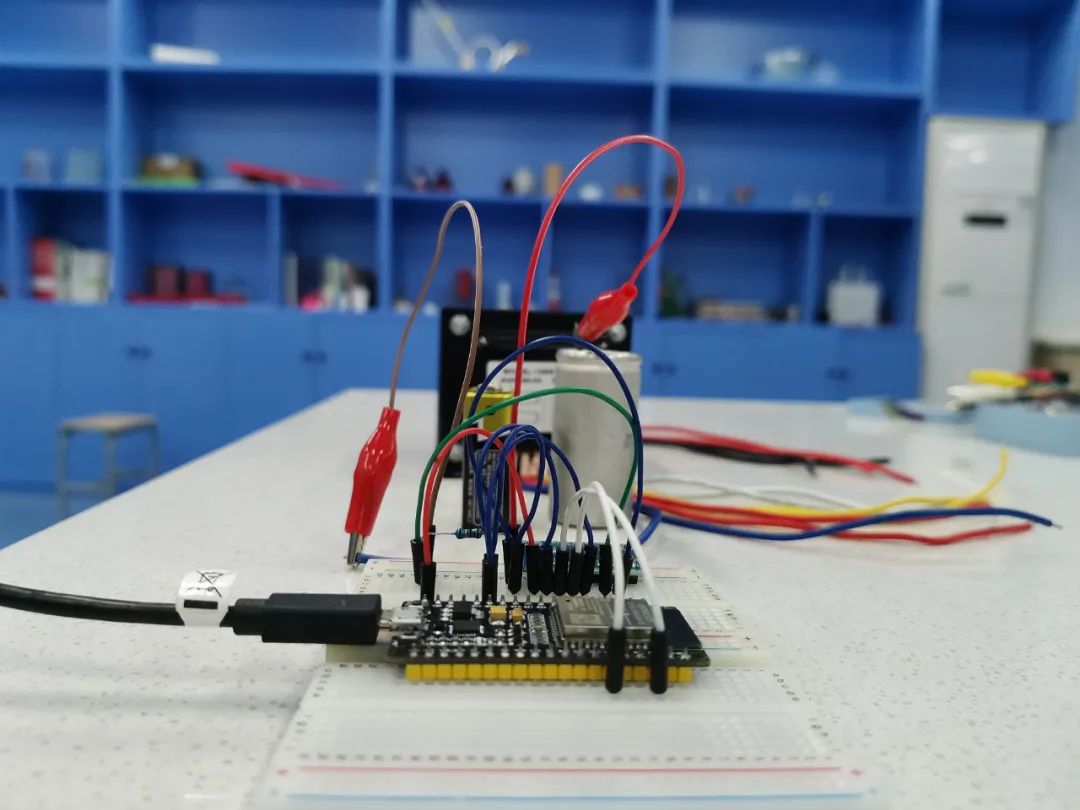
Recently, we conducted an electromagnetic oscillation experiment using Phyphox, ESP32, and ADS1115. The results were very satisfactory, and we witnessed the oscillation of current in the LC oscillation circuit composed of the coil and capacitor.
Following the diagram, we connected the ESP32 and ADS1115 using DuPont wires. The wiring was quite complex due to the presence of both measurement and experimental circuits on the breadboard, and it was easy to make mistakes if not careful.
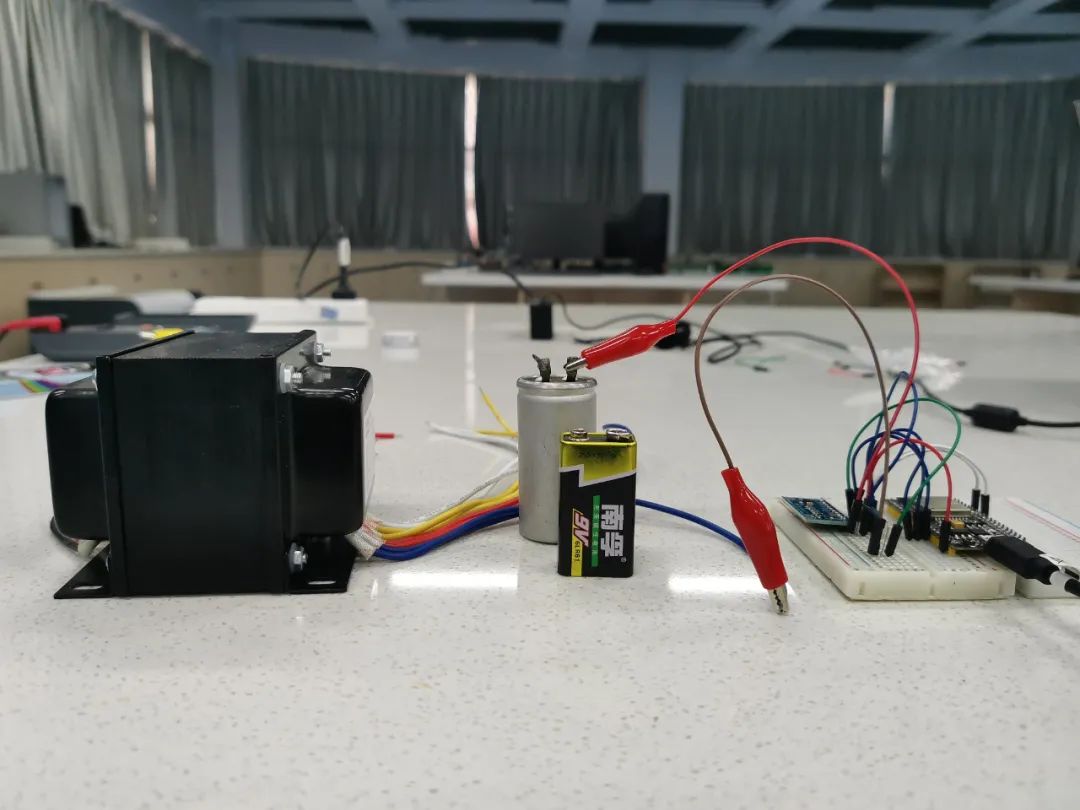
We modified the corresponding “self-induction” code from a previous experiment to “electromagnetic oscillation” and then uploaded the experimental source code to the ESP32.
We connected the differential voltage measurement terminal in parallel with a fixed resistor in series with the coil. In Phyphox, we added the experiment via Bluetooth and loaded the experimental source code into the Phyphox app on our smartphone.
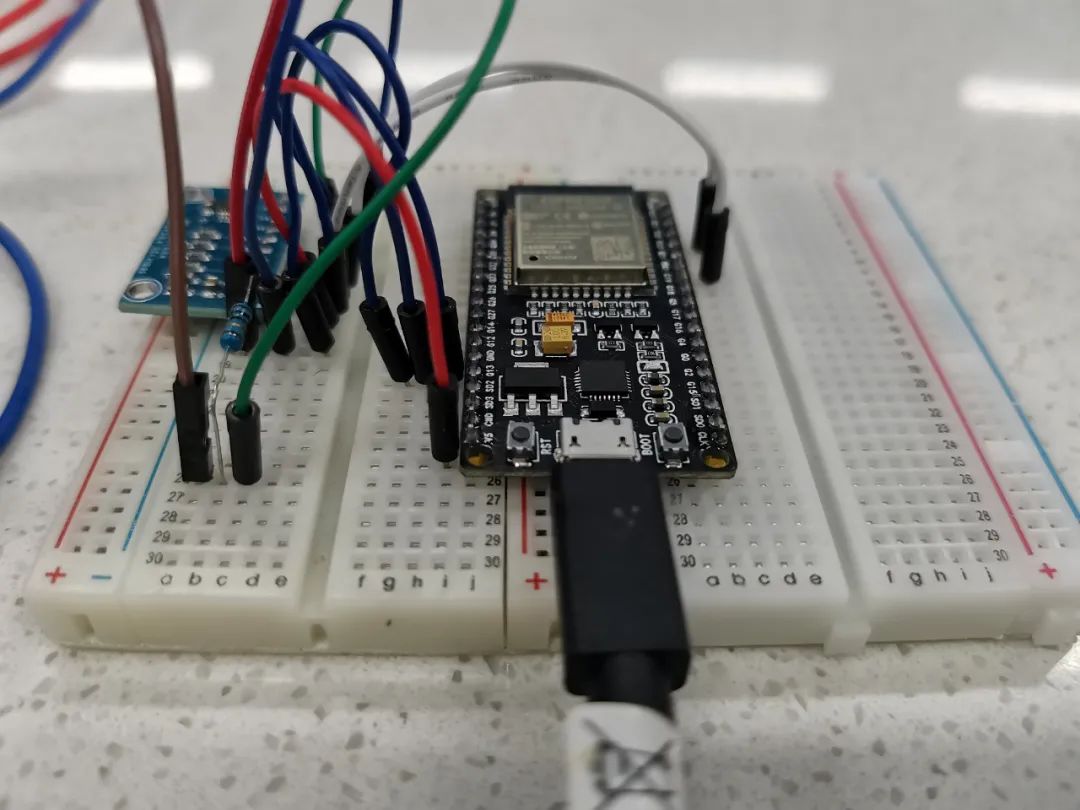
We established a Bluetooth connection between the smartphone and the ESP32, ran the mobile experiment program, and used the ADS1115 to measure the voltage across the fixed resistor, converting it to current. We first charged the capacitor with a 9-volt battery, then connected the capacitor in a loop with the coil, and Phyphox automatically displayed the current waveform through the fixed resistor in series with the coil during the electromagnetic oscillation.
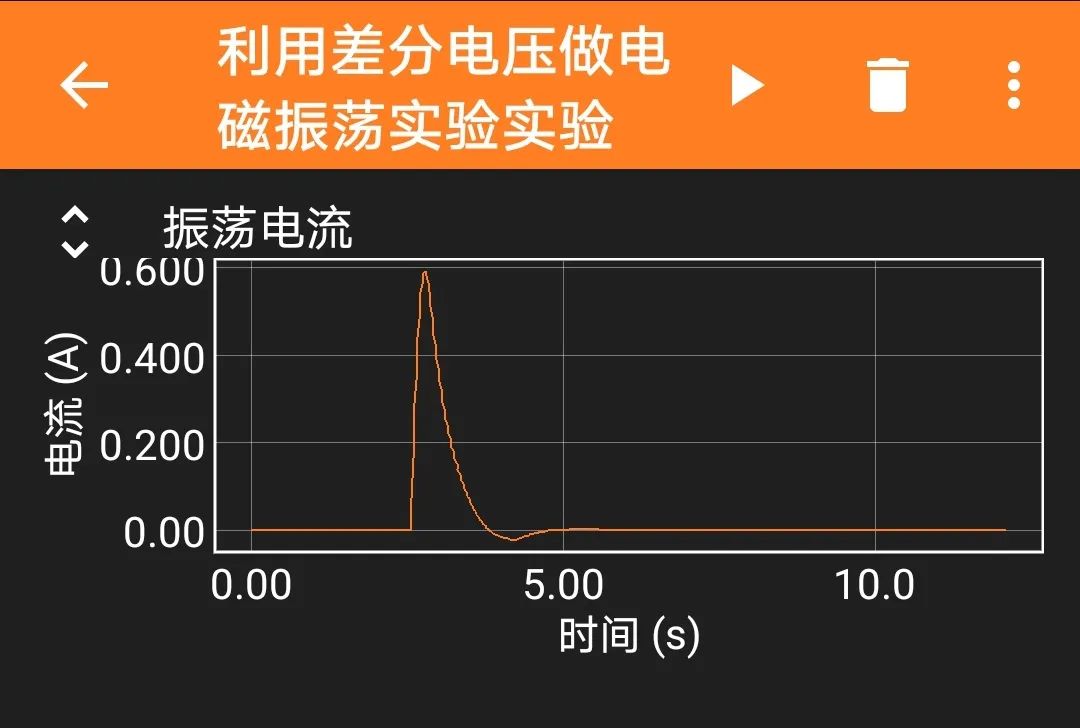
Oscillating current waveform
When we expanded the current waveform to full screen, we observed that at the moment the oscillation circuit suddenly closed, the current in the series fixed resistor with the coil oscillated, continuing for 1.5 cycles.
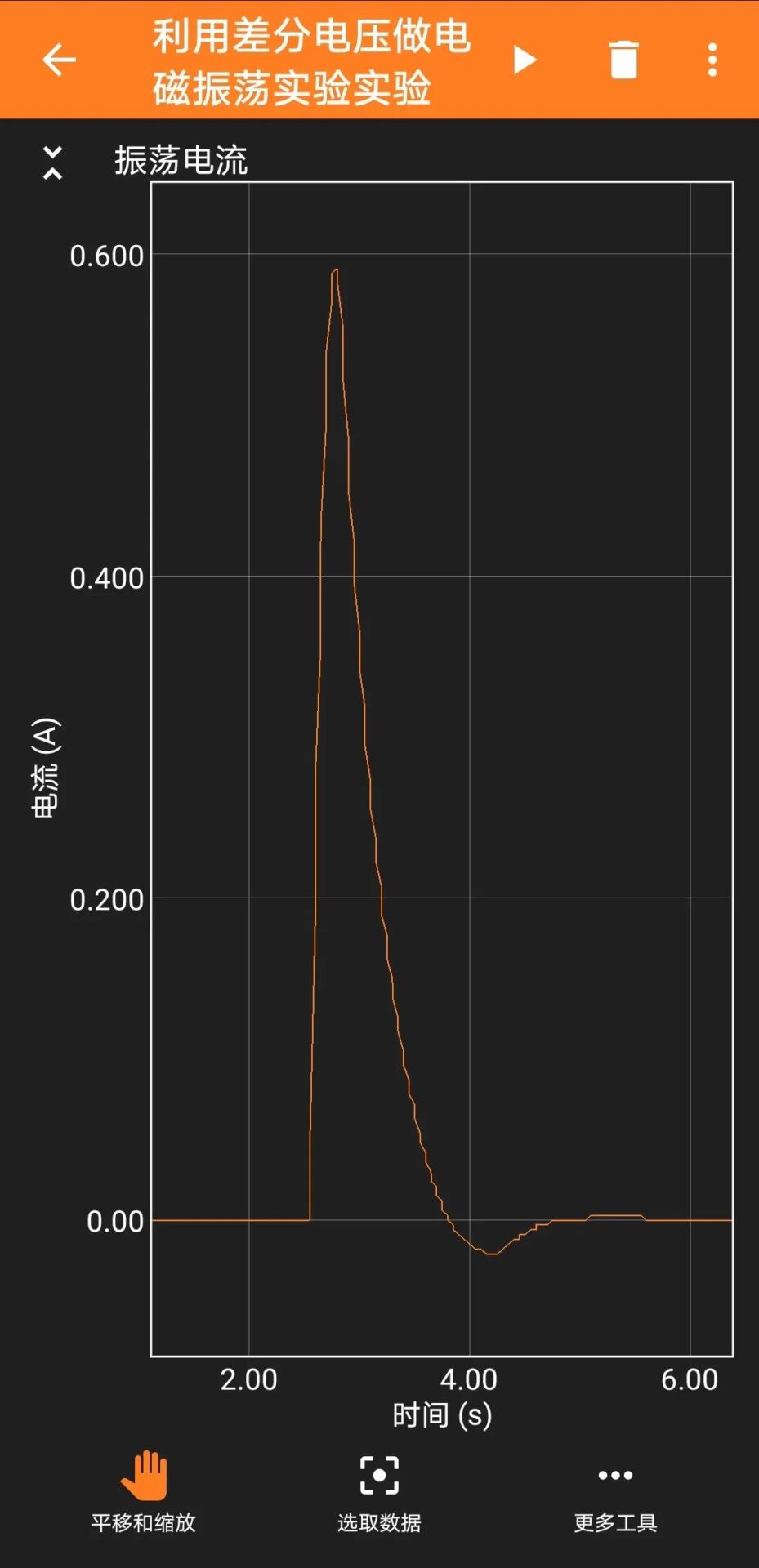
Oscillating current waveform
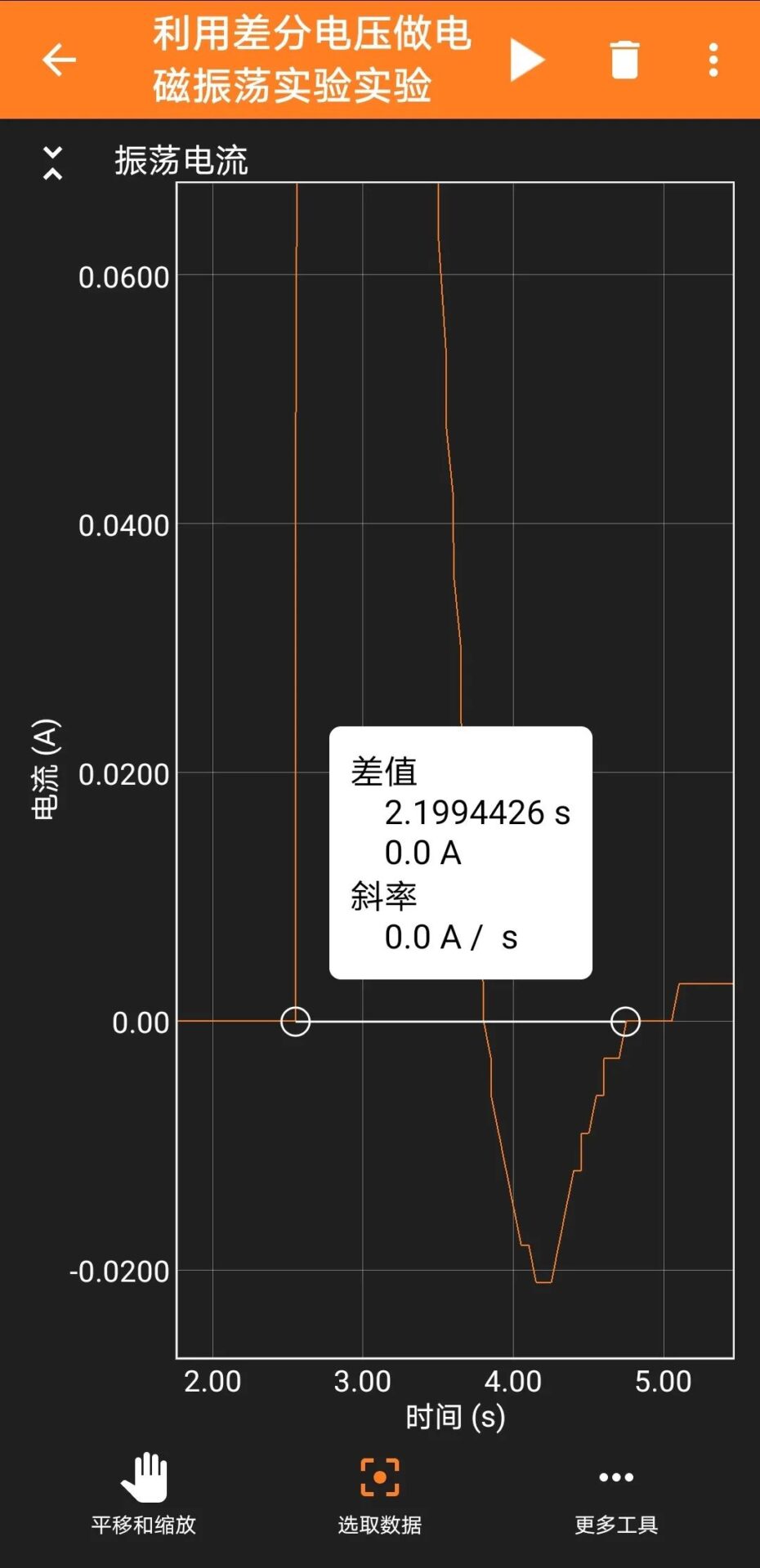
Oscillation period measurement
It was measured that the oscillation period of the electromagnetic oscillation circuit in this experiment was 2.2 seconds, and the experiment was a complete success.

| Maker Jiaozuo |
HenanMaker Jiaozuo is the WeChat public platform of the Maker Education Teacher Studio in Jiaozuo City, focusing on Maker Education as the main research direction, sharing Maker cases, explaining innovative methods, inspiring creative design, conducting scientific inquiries, organizing social investigations, guiding thesis writing, participating in Maker competitions and patent applications, and discovering, cultivating, and achieving a group of students with innovative potential.
HenanPublic number: chuangkejiaozuo
HenanFamous teacher blog: http://blog.sina.com.cn/updays

Long press to identify, follow, share
– END –
